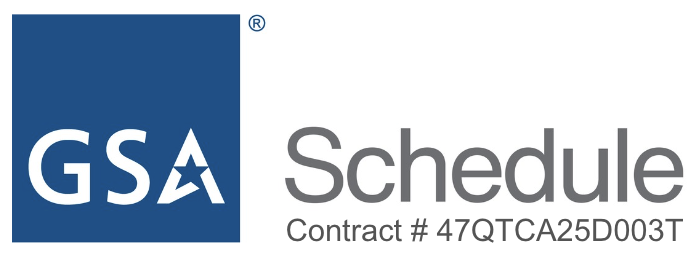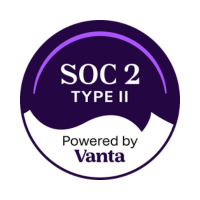
There’s something about opening a fresh notebook or even a blank note on your phone—that can feel both exciting and intimidating. Journaling is often seen as a “must-do” habit for self-care, but sitting down to actually write can feel like pressure. Do you have to be profound? Organized? Poetic?
The truth is, journaling doesn’t have to look like a beautifully written diary. It’s simply a practice of putting thoughts, feelings, and experiences somewhere outside your head. Done consistently, it can become a supportive tool for your mental health, one that helps you slow down, process, and feel more grounded.
How Journaling Shapes Your Brain
Research from UCLA shows that expressive writing activates the prefrontal cortex, the part of the brain that helps us think clearly and manage emotions while calming down the amygdala, which is responsible for detecting threats. This brain shift explains why journaling can help ease anxiety and create a sense of calm.
Over time, journaling also supports neuroplasticity the brain’s ability to form new pathways and connections. An article published in ScienceDirect states regular journaling practice doesn’t just help in the moment; it may actually strengthen your brain’s capacity for emotional regulation and stress management in the long run.
Why Journaling Helps
Other benefits of journaling include:
- • Stress relief: Putting words to emotions can help your brain regulate them, lowering anxiety and tension.
- • Clarity: Journaling makes it easier to notice patterns, identify triggers, and untangle complicated thoughts.
- • Self-awareness: Writing helps you step back, reflect, and understand your experiences more fully.
- • Resilience: Over time, journaling can boost mood, improve sleep, and strengthen coping skills.
At its core, journaling creates a safe, private space where you can be honest with yourself whether that means jotting down a list, free-writing a page, or sketching a doodle.
8 Types of Journaling to Try
Not every style will feel right, and that’s the point, you can adapt journaling to whatever season you’re in. Here are a few ways to get started:
- 1. Gratitude journaling: Write down 3–5 things you’re grateful for. Simple, quick, and mood-boosting.
- 2. Stream-of-consciousness journaling: Write whatever comes up, with no editing. Great for emotional release.
- 3. Bullet journaling: Combine lists, goals, and habit trackers in one place—part planner, part reflection tool.
- 4. Reflective journaling: Slow down and process your day or week. Ask yourself “What happened? How did I feel? Why?”
- 5. Prompt-based journaling: Use prompts like “Right now, I need…” or “Something I want to let go of is…” to guide your writing.
- 6. Visual journaling: Draw, collage, or doodle when words don’t capture your feelings.
- 7. Affirmation journaling: Write self-supportive statements, such as “I am learning to trust myself.”
- 8. Dream journaling: Jot down what you remember when you wake up. Dreams often reveal patterns and emotions beneath the surface.
Finding Your Style
There’s no “right” way to journal. Some people thrive on structure; others just need a place to vent. Your style can shift depending on your mood, your schedule, or the season of life you’re in.
Start small, just a sentence or a list, and see how it feels. Try different approaches until one sticks. Most importantly, release the expectation of doing it perfectly. Messy, fragmented, and inconsistent entries still count.
Journaling is less about filling the page and more about showing up for yourself.
10 Journaling Prompts to Get You Started
If staring at a blank page feels overwhelming, prompts can help ease you in. Think of them as gentle invitations to explore what’s going on inside you. You don’t have to write a full page, just start with a line or two.
Here are 10 prompts to try:
- 1. Today I feel… (Describe it without judgment.)
- 2. One small thing I’m grateful for right now is…
- 3. If my mood was the weather, it would be…
- 4. A thought or worry I want to let go of is…
- 5. Something that’s been weighing on me lately is…
- 6. One thing that gave me joy or peace today was…
- 7. If I could talk to my younger self right now, I’d say…
- 8. What do I need more of in my life right now?
- 9. What’s one boundary I can set to support my wellbeing?
- 10. A time I felt really proud of myself was…
Progress, Not Perfection
Journaling doesn’t have to be neat, polished, or even consistent to make a difference. It’s not about creating a perfect record of your life, it’s about giving yourself space to reflect, process, and breathe.
Whether you write every morning, once a week, or only when you need it most, journaling can become a powerful tool for supporting your mental health. Start small, experiment with styles, and let your practice be as flexible as you are.
More for Your Mental Toolbox
.jpg)
From Thanks to Thriving: Gratitude’s Impact on Your Brain
Gratitude can literally rewire your brain for calmer moods, better sleep, and deeper joy. Discover how a simple daily practice boosts resilience, connection, and well-being.
Read more →
Breaking the Silence: National PTSD Awareness Month
June marks PTSD Awareness Month—a time to educate, reduce stigma, and support the millions impacted by trauma with understanding, treatment, and hope for healing.
Read more →








